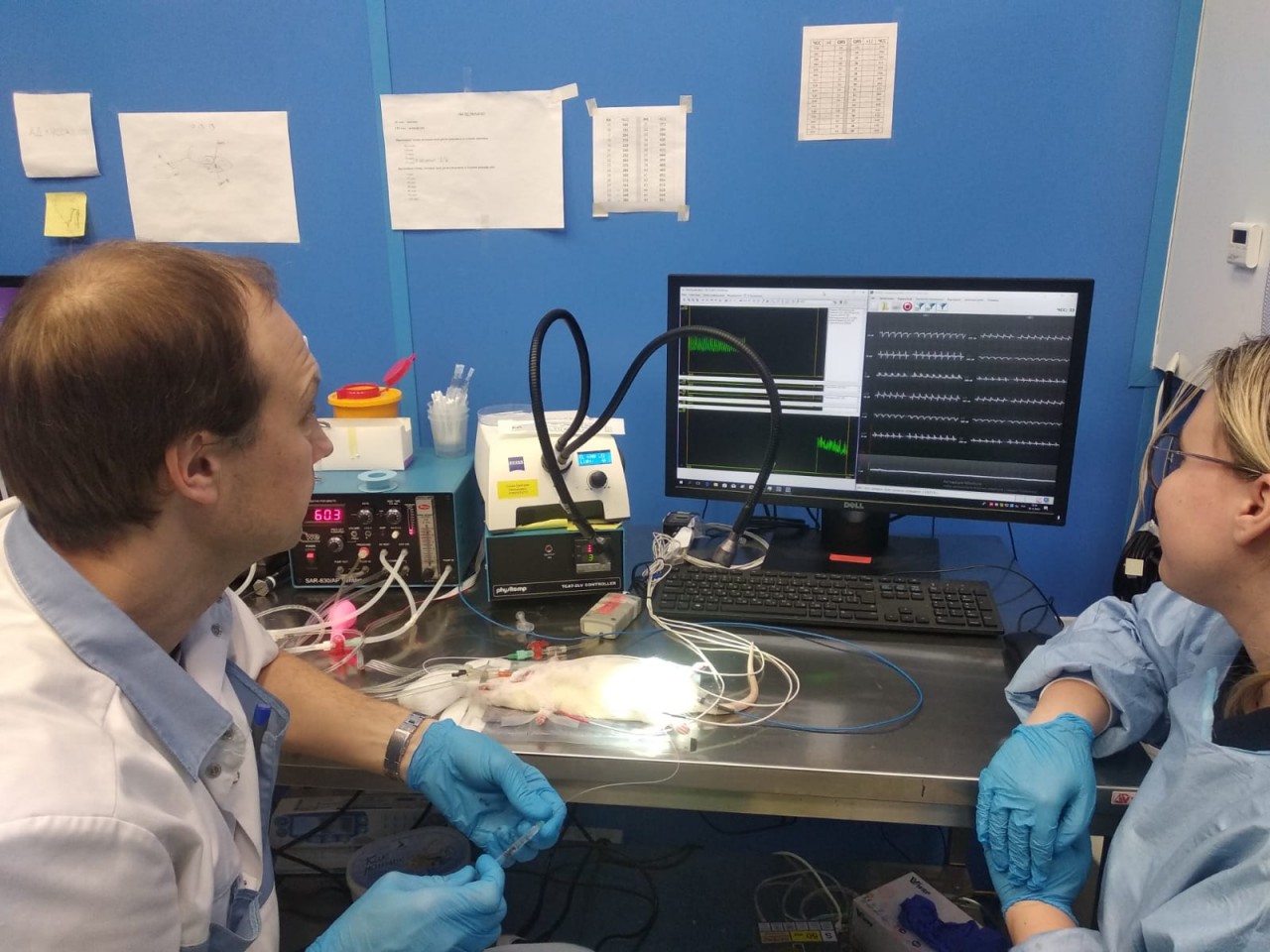
The research team at the Institute of Experimental Medicine of Almazov Centre, headed by Mikhail Mikhailovich Galagudza, Corresponding Member of the Russian Academy of Sciences, found that a mixture of bifido- and lactobacilli introduced into the diet can reduce the size of the myocardial necrosis when modeling myocardial infarction in an acute experiment on rats with systemic inflammatory response syndrome (SIRS). The results of the study supported by a grant from the Russian Science Foundation were published in the journals Microorganisms, Medical Immunology, Bulletin of Experimental Biology and Medicine, I. M. Sechenov Journal of Physiology and others.
The human genome consists of 22,000 protein-coding genes, and according to various estimates, the microbiome carries 150-360 times more unique coding genes than the human body. In this regard, scientists deem it reasonable that the immunological and metabolic potential of the gut microbiota may be directly related, among other things, to modulating myocardial resistance to ischemia reperfusion injury. Researchers suggest that symbiotic microorganisms for probiotic preparations significantly affect both the course of normal physiological processes and health conditions, especially those of an inflammatory nature.
“Evolutionarily adapted probiotic microbes have a vital interest in maintaining a mutually beneficial relationship with the host. We assume that bacteria protect heart cells from toxic damage and the consequences of oxygen deprivation by fine regulation of pro- and anti-inflammatory signaling molecules,” explains Mikhail Galagudza, Director of the Institute of Experimental Medicine.
To determine the cardioprotective capabilities of probiotic microorganisms, an original experimental model of polymorbidity in small rodents was developed, including primary visceral obesity (PVO), inflammatory bowel disease (IDD) and antibiotic-induced dysbiosis (AID). This bunch of clinically common conditions was characterized by a significant increase in the levels of a number of pro-inflammatory cytokines in experimental animals.
A few days before modeling myocardial infarction and AID in the acute experiment and for 8 days further, different groups of rats with PVO were intragastrically injected with various probiotic strains and mixtures of strains.
Observations showed that the introduction of a mixture of Lactobacillus acidophilus and Bifidobacterium animalis, unlike other probiotics, reduced the size of damage to the heart muscle caused by myocardial infarction by 10%. This improvement in the heart health of the animals was accompanied by decreased concentration of pro-inflammatory cytokines and an improvement in the general condition, including the digestive system.
Scientists suggest that the mechanism of cardiac protection is based on the ability of symbiotic microorganisms to synthesize blockers of certain pro-inflammatory cytokines, their receptors, or to modulate the expression of their genes. Researchers hope that further study of the mechanisms of probiotic cardiac protection will help create new therapeutic and preventive approaches in cardiology by selecting strains for new probiotic preparations and functional foods.
